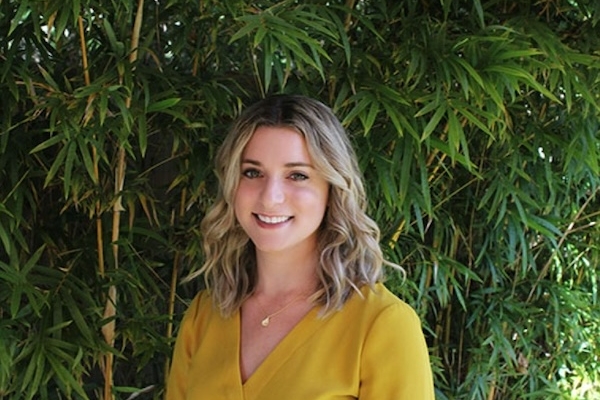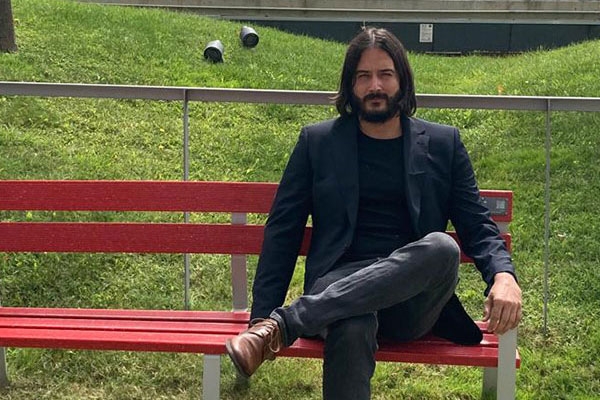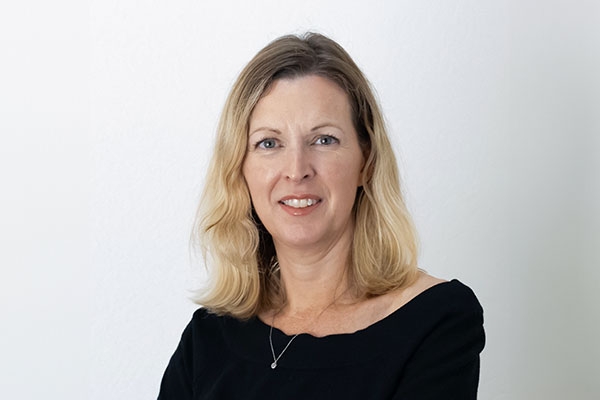Our Certificate Program in Personal Financial Planning provides an academic path to joining the financial planning profession. Through the curriculum, you learn to analyze and advise in all core areas of personal financial planning.
And that was what Sandeep Gandhi—a former electrical engineer—was looking for. After a successful career change to investments and finance, Sandeep continues to learn more and to invest in his success in his profession.
For example: In 2012, he passed the rigorous multilevel exams to earn the designation of Chartered Financial Analyst® (CFA), which according to the CFA Institute is the “highest distinction in the investment management profession.”
And it’s his journey for continual investment in his career that brought him to our Personal Financial Planning certificate.
“My professional work experience has been very much focused on investing, which—in my opinion—forms the core engine that drives most financial-planning work,” he says.
“Having the knowledge of the other pieces of financial planning has helped me gain a broader understanding of the different factors and objectives that drive an individual’s investment choices, and how a particular investment choice might fit into their broader financial picture.”
Opportunity in Southeast Asia
“On a scholarship, I moved to Singapore from India to pursue my undergraduate degree in electrical engineering at the National University of Singapore,” recalls Sandeep.
“But after an internship at an engineering firm during my undergraduate studies, I decided not to pursue a career in engineering. I liked the work itself, but the culture of the workplace really did not work for me. That experience motivated me to find work in an industry that was more people-centric.”
After Sandeep graduated in 2004, he briefly joined the Singapore Tourism Board as a management associate. But he began to miss the intellectual challenge that his electrical engineering degree had provided and decided that consulting was where he wanted to be. He started in technology consulting before moving to the business-consulting side at Accenture.
That’s around the time when a friend of his introduced him to investing.
“It sparked my interest; I started spending a lot of my time outside of work reading up on investing and attending seminars, and I began trading some of my personal savings,” Sandeep says. “I loved the challenge and started following the financial markets closely, and it soon turned from just something I did on the side to something I really wanted to learn more about and spend most of my time thinking about. So I decided perhaps I should try to shift careers to finance—investing, in particular.”
Networking a Career in Finance
It wasn’t easy for someone with an electrical engineering degree and a background in consulting to move into a career in finance.
“I was told business school was the most likely route, but I wasn’t sold on that,” admits Sandeep. “After many months of networking, interviews and numerous rejections, I eventually had two offers in hand for roles in finance. In early 2008, I accepted a role as an associate quantitative analyst with Macquarie, an Australian bank in Hong Kong.”
But in early 2009, the financial crisis reached him: Sandeep was laid off.
“I emailed every single person I knew in the industry,” he recalls. “I probably heard back from about 30, of which only two did not include some flavor of, ‘Sorry. Hiring freeze.’ in their responses.”
One of those was from GMO.
“I was brought in on a 3-month initial contract to implement a specific project for the fundamental investing team based out of Singapore. I guess my boss liked my work and thought I would be a good fit for the team based in the San Francisco Bay Area. He introduced me to the team here, and after a probationary period and project, I was extended an offer for a full-time position as a quantitative investment analyst on the Bay Area Emerging Markets Equities team at GMO.”
Why He Will Never Be Done Learning
Eleven years into his career at GMO, Sandeep still finds himself challenged by his work.
“I spent my initial years working on several different parts of the investment process, from analytics to portfolio construction and research on building the actual quantitative ‘alpha’ strategies that form the core,” he says.
“Additionally, given the time I had spent with the fundamental team in Singapore, I was also a liaison between the quantitative and fundamental teams. I was also involved in the launch of our Emerging Domestic Opportunities Fund, which is managed by our fundamental team.”
But he doesn’t consider himself anywhere near finished learning, especially when it comes to how investing and personal finances work together.
“Through my work at GMO, the CFA® curriculum, my personal investments and extensive reading on all things related to investing, I learned a lot about the field,” he says. “Of course, there is always more to learn, and I am never going to ‘get done’ learning about investing.
“But as I thought more about my personal finances, I realized there was more to think about.”
That’s when Sandeep turned to our Certificate Program in Personal Financial Planning.
“I had also been volunteering as a financial literacy instructor at Narika's Self-Empowerment and Economic Development (SEED) Program, which is a local nonprofit organization, and realized I could add a lot more value to the participants if I had a broader knowledge of personal financial planning than just the investing piece.
“My motivation to enroll in the certificate program stemmed from a genuine curiosity and desire to learn about personal financial planning,” he adds. “Even though it was stressful at times to juggle the class workload alongside a full-time job, I really enjoyed my courses and their content.”
One of the reasons: our instructors in the program.
“I particularly enjoyed my classes with Kurt Carrasquilla [Investments in Personal Financial Planning: General Principles and Methods], Rich Arzaga [Real Estate Investments for Financial Planners] and Heather Liston [Income Taxes and Personal Financial Planning].
“They are all extremely knowledgeable in their respective areas, very approachable and gracious with their time and attention, which I truly appreciated,” he praises. “I had one-on-one conversations with a few of the instructors, which really helped me understand the advisory landscape better and gave me a better understanding of that part of the business.
“I learned a lot about the financial advisory and wealth management industries through the many conversations I had during the courses and events at Extension,” he says, “and made some very good friends along the way.”
“The one thing that I got from the Certificate Program in Personal Financial Planning that I truly believe is unparalleled is access to industry practitioners—veterans and peers alike.”
Helping Others Make a Personal Financial Plan
Investing is core to Sandeep’s career, and he is already realizing the benefits of what he learned in the certificate program.
“Years from now, I would like to be managing an investment fund for institutional as well as individual clients,” Sandeep says. “The coursework in the Personal Financial Planning certificate helps me understand the different pieces involved in a family’s finances. I am more confident in recommending allocations to various assets—and potentially the fund I will manage—based on having a holistic understanding of whether, and how best, it would fit within my clients’ overall financial and investment plans. In addition, I have had the opportunity to help friends and colleagues think about and plan their families’ finances, which has been very fulfilling.”
Would he recommend the program to other Bay Area residents? He answers with a resounding, “Yes.”
“If you are in the financial planning or advisory industry and looking to work toward achieving the CFP® designation and you are based in the San Francisco Bay Area, UC Berkeley Extension should be at the top of your list,” he effuses.
“If you wish to take a longer-term view of your career, the accessible network that Extension’s program provides is something most other programs will not come close to offering.
“If you are looking to change careers to the financial planning or advisory world, or are simply interested in learning more about personal finance like I was, I can assure you that you will learn a lot in the Personal Financial Planning program—and also have fun along the way!”



